
Dire Dawa: Ethiopia's Gateway to Culture and Commerce
Nestled in the eastern part of Ethiopia, Dire Dawa is a vibrant city that combines historic charm with modern flair. Founded in 1902, the city quickly became a significant hub due to the construction of the Addis Ababa-Djibouti Railway. Today, it stands as a melting pot of cultures, offering tourists a unique blend of Ethiopian, French, and Italian influences. Strolling through Dire Dawa's streets, you will encounter an array of architectural styles, from colorful traditional homes to colonial-era buildings. The Kafira Market is a must-visit, where you can experience the hustle and bustle of local commerce, taste exotic spices, and buy handmade crafts. The city's railway station, a relic of its colonial past, offers a glimpse into the history that shaped Dire Dawa into what it is today. Dire Dawa is also known for its stunning natural scenery. The nearby Harar Jugol, recognized as a UNESCO World Heritage site, is just a short drive away and provides an incredible opportunity to explore ancient walled cities and encounter unique wildlife. For those interested in local culture, the city hosts various festivals and events throughout the year, showcasing traditional music, dance, and cuisine. Whether you're a history buff, a nature lover, or a cultural enthusiast, Dire Dawa offers something for everyone.
Local tips in Dire Dawa
- Visit the Kafira Market early in the morning to avoid crowds and get the best selection of goods.
- Carry local currency, as many smaller shops and markets do not accept credit cards.
- Wear comfortable shoes for walking, as many attractions are best explored on foot.
- Try to learn a few basic phrases in Amharic to help you interact with locals.
- Plan a day trip to Harar Jugol for a deeper dive into the region's rich history.
Dire Dawa: Ethiopia's Gateway to Culture and Commerce
Nestled in the eastern part of Ethiopia, Dire Dawa is a vibrant city that combines historic charm with modern flair. Founded in 1902, the city quickly became a significant hub due to the construction of the Addis Ababa-Djibouti Railway. Today, it stands as a melting pot of cultures, offering tourists a unique blend of Ethiopian, French, and Italian influences. Strolling through Dire Dawa's streets, you will encounter an array of architectural styles, from colorful traditional homes to colonial-era buildings. The Kafira Market is a must-visit, where you can experience the hustle and bustle of local commerce, taste exotic spices, and buy handmade crafts. The city's railway station, a relic of its colonial past, offers a glimpse into the history that shaped Dire Dawa into what it is today. Dire Dawa is also known for its stunning natural scenery. The nearby Harar Jugol, recognized as a UNESCO World Heritage site, is just a short drive away and provides an incredible opportunity to explore ancient walled cities and encounter unique wildlife. For those interested in local culture, the city hosts various festivals and events throughout the year, showcasing traditional music, dance, and cuisine. Whether you're a history buff, a nature lover, or a cultural enthusiast, Dire Dawa offers something for everyone.
When is the best time to go to Dire Dawa?
Iconic landmarks you can’t miss
ሳምራት ሆቴል Samrat Hotel
Discover the perfect blend of comfort and entertainment at Samrat Hotel in Dire Dawa, where modern amenities meet Ethiopian hospitality.

Dire Dawa Ras Hotel
Experience the essence of Ethiopian hospitality at Dire Dawa Ras Hotel, your gateway to exploring the vibrant culture and history of Dire Dawa.
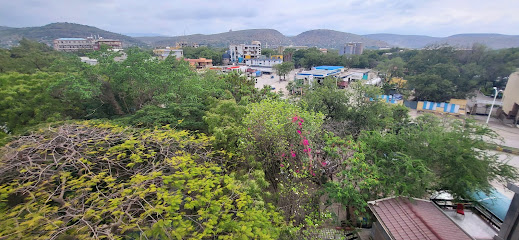
New Blossom, Hotel & Spa
Experience the essence of Ethiopian hospitality at New Blossom Hotel & Spa, your serene getaway in the vibrant city of Dire Dawa.

Triangle Hotel | ትሬያንግል ሆቴል
Experience comfort and hospitality at Triangle Hotel in Dire Dawa, your ideal base for exploring the region's rich culture and attractions.

MM Hotel
Discover the comfort and charm of MM Hotel in Dire Dawa, where modern amenities meet traditional Ethiopian hospitality for an unforgettable experience.

African Village
Discover Ethiopian culture and hospitality at African Village, a vibrant hotel in Dire Dawa, perfect for travelers seeking authentic experiences.
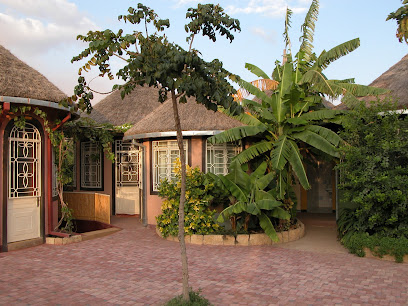
Papa Recreation Centre
Explore Papa Recreation Centre in Dire Dawa for an unforgettable experience of leisure and local culture, perfect for families and tourists alike.
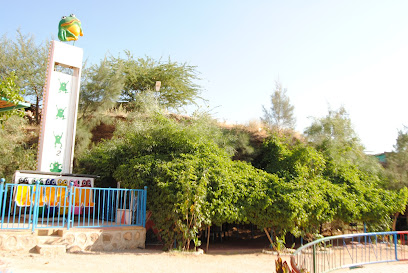
Seista Hotel
Discover the comfort and local charm of Seista Hotel in Dire Dawa, a perfect retreat for travelers seeking relaxation and cultural immersion.
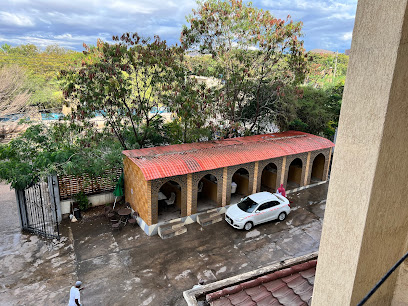
Dredawa Saint Gabriel Ethiopian Orthodox Tewahedo Church
Explore the spiritual and cultural legacy of Ethiopia at Dredawa Saint Gabriel Ethiopian Orthodox Tewahedo Church in Dire Dawa, a journey through faith and tradition.
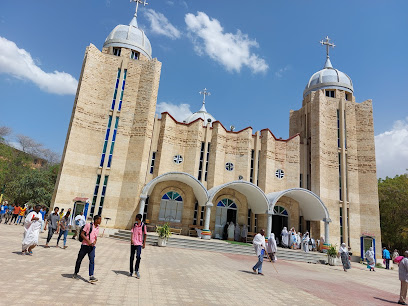
Cleopatra Hotel and Spa
Experience comfort and relaxation at Cleopatra Hotel and Spa, your perfect retreat in the heart of Dire Dawa, Ethiopia.

ALI BIRRA PARK
Experience the tranquility and natural beauty of Ali Birra Park in Dire Dawa, a perfect retreat for relaxation and cultural immersion.
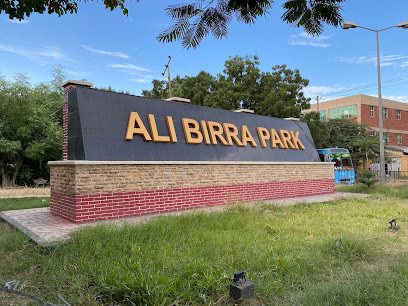
Selam Hotel
Discover the charm of Dire Dawa at Selam Hotel, offering affordable comfort and perfect access to the city's vibrant culture and attractions.
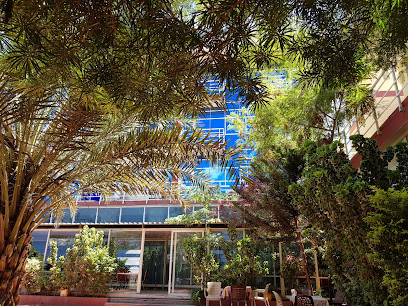
MA Hotel
Discover comfort and local charm at MA Hotel in Dire Dawa, Ethiopia, the perfect base for exploring the region's rich culture and history.

Ethiopian Airlines
Discover the world with Ethiopian Airlines, your gateway to Africa's rich cultures and stunning landscapes, all from the heart of Dire Dawa.
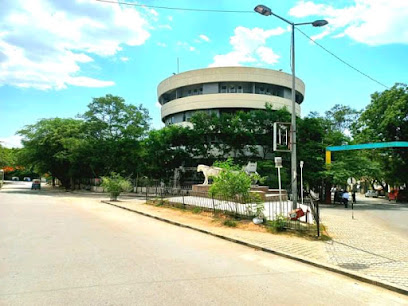
Ashewa Cloth Market
Discover the vibrant culture of Ethiopia at Ashewa Cloth Market, where colorful textiles and local craftsmanship come together in a lively shopping experience.
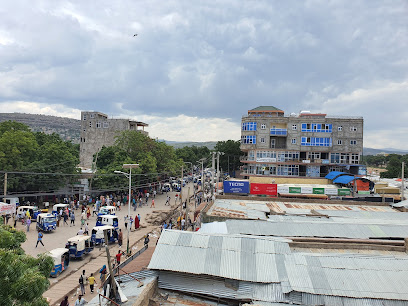
Unmissable attractions to see
ALI BIRRA PARK
Explore the tranquil beauty of Ali Birra Park in Dire Dawa, a serene escape filled with lush greenery and vibrant local flora.
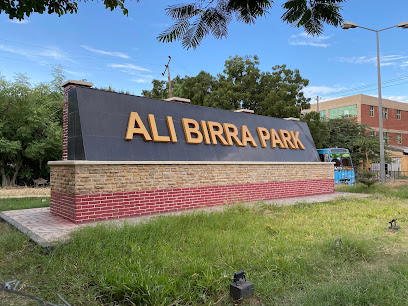
chemin de fer square
Explore the vibrant Chemin de Fer Square in Dire Dawa, where culture, history, and local life come together in a captivating atmosphere.
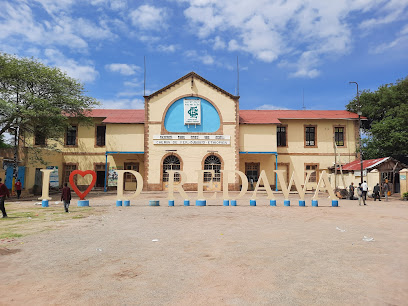
Kefira Market
Explore Kefira Market in Dire Dawa for an authentic Ethiopian shopping and culinary experience amidst vibrant local culture.
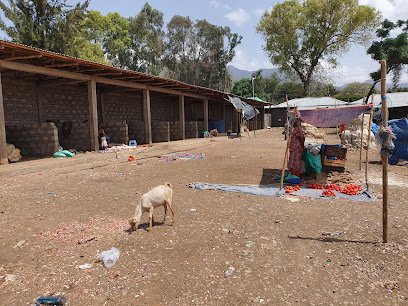
Kezira roundabout
Explore the vibrant heart of Dire Dawa at Kezira Roundabout, a cultural and commercial hub that captures the spirit of Ethiopia.
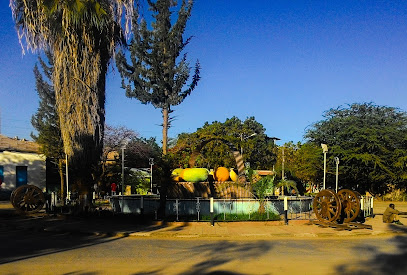
Millennium park
Experience the tranquility and community spirit at Millennium Park in Dire Dawa, a perfect blend of nature and local culture.
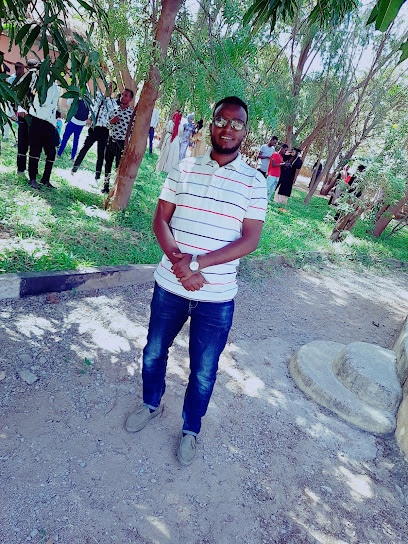
Dabbaal
Explore the hidden beauty of Dabbaal in Kurfa Chele, Ethiopia, where stunning landscapes meet rich cultural experiences for every traveler.
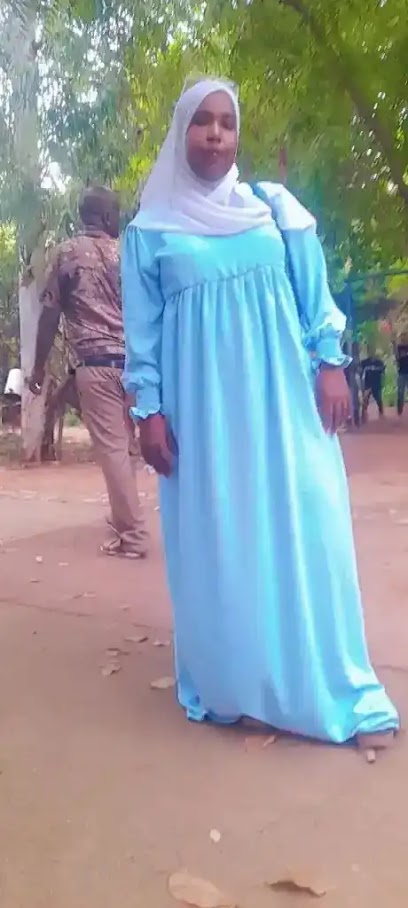
Garamuleta Mountain
Explore Garamuleta Mountain, a hidden gem in Ethiopia offering stunning vistas, rich biodiversity, and unforgettable outdoor adventures.
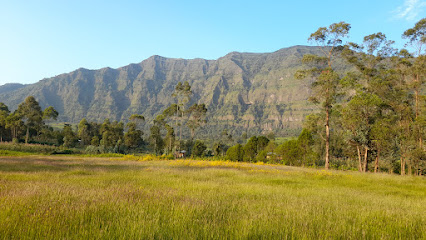
Tekle Demissie
Explore the tranquil beauty of Tekle Demissie, a serene garden in Dire Dawa, where nature and peace intertwine in perfect harmony.
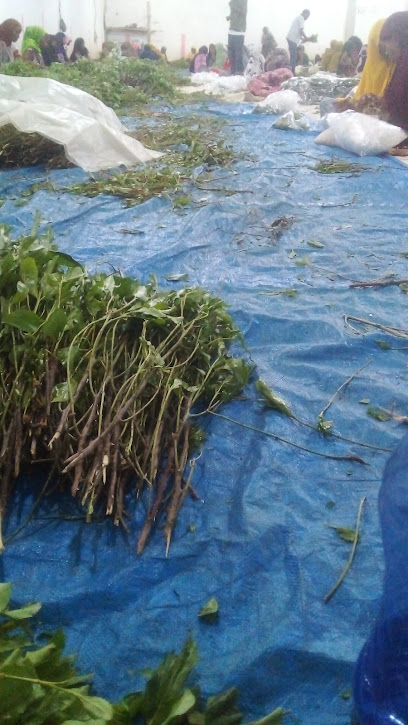
Porc Epic Cave
Experience the breathtaking beauty and rich history of Porc Epic Cave in Dire Dawa, Ethiopia - a true natural wonder.
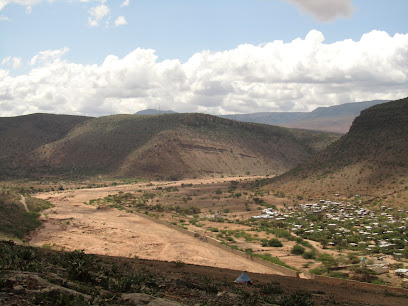
Ethiopian dire dawa city gend kore
Explore the vibrant culture and rich history at Gend Kore, a must-visit tourist attraction in Dire Dawa, Ethiopia.
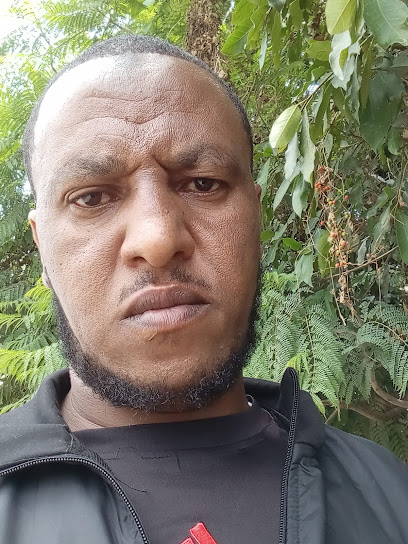
ጋሽ አቤ ጋራ Gash Abe Mountain
Explore the breathtaking beauty of Gash Abe Mountain, a serene park near Dire Dawa, perfect for nature lovers and adventure seekers.
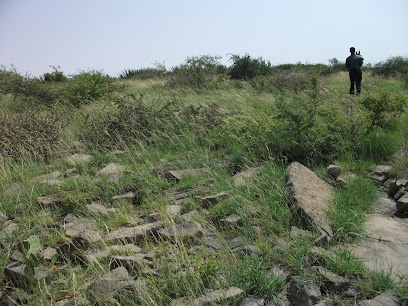
Sami Menafesha
Discover the serene beauty of Sami Menafesha in Dire Dawa, an inviting park perfect for relaxation and cultural immersion.

Ganda qaalluu
Explore Ganda Qaalluu, a captivating tourist attraction in Karamile, Ethiopia, where nature, culture, and history come together in stunning harmony.
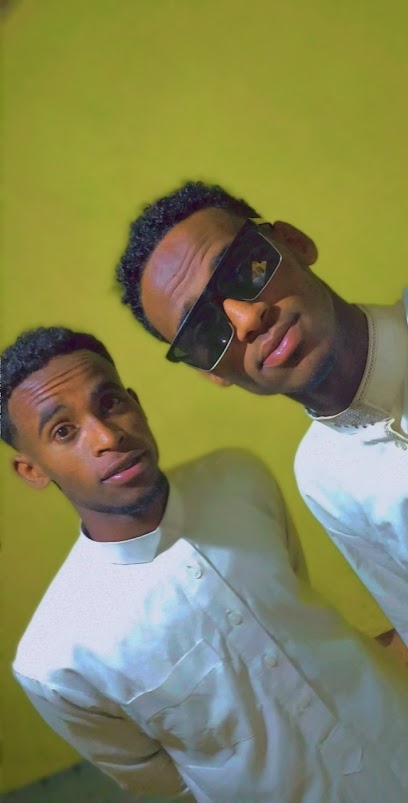
Mijiliska Reer-BIINLE
Discover tranquility at Mijiliska Reer-BIINLE, a beautiful park in Dire Dawa, perfect for relaxation, picnics, and enjoying nature's beauty.
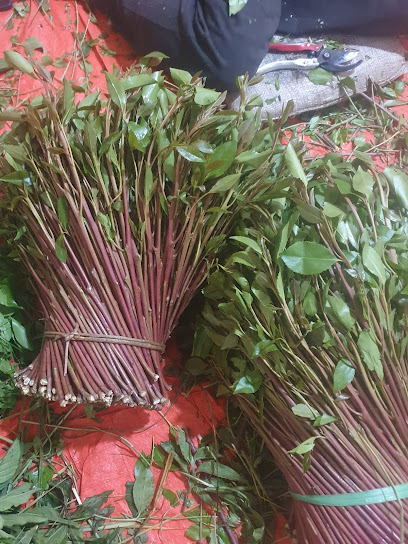
Diaspora Park -የዲያስፖራ ፓርክ
Explore the serene beauty of Diaspora Park in Dire Dawa, a tranquil oasis perfect for relaxation, picnics, and family outings amidst lush greenery.
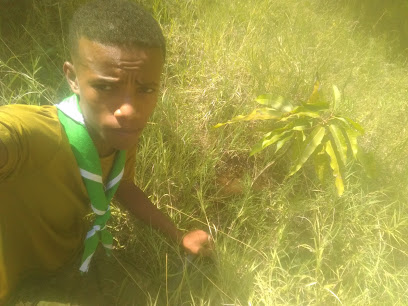
Essential places to dine
ፓራዲዞ ሬስቶራንት Paradiso Italian and European Restaurant
Experience authentic Italian cuisine at Paradiso Restaurant in Dire Dawa – where tradition meets taste for an unforgettable dining experience.
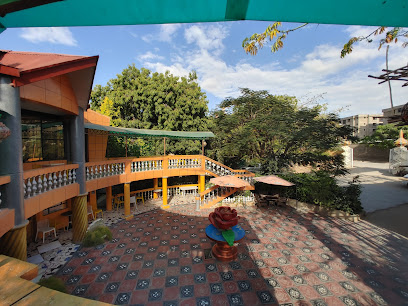
ደሳለኝ ክትፎ Dessalegn Kitfo
Experience authentic Ethiopian cuisine at Dessalegn Kitfo in Dire Dawa, where delicious flavors meet warm hospitality.
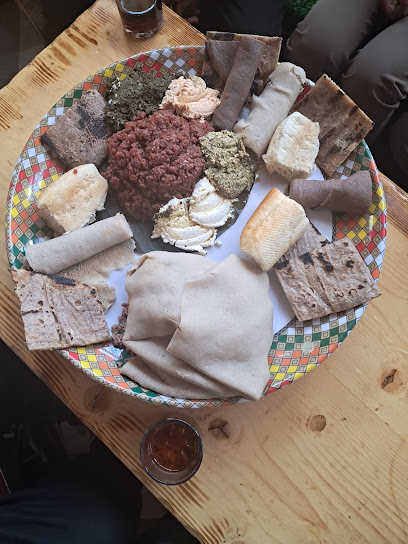
Menelaos Roast Chicken
Experience authentic Ethiopian cuisine at Menelaos Roast Chicken in Dire Dawa - where every bite tells a story.
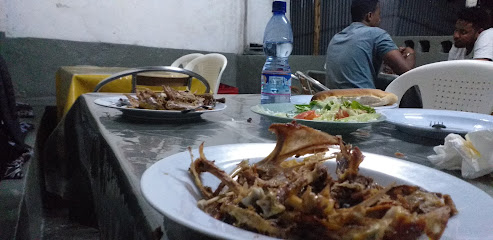
Holly Cafe & Resturants
Discover the rich flavors of Ethiopia at Holly Cafe & Restaurants in Dire Dawa – where local meets global cuisine.
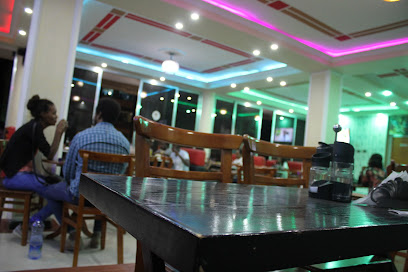
Red Sea Restuarant
Experience the rich flavors of Ethiopian cuisine at Red Sea Restaurant in Dire Dawa – where tradition meets taste.
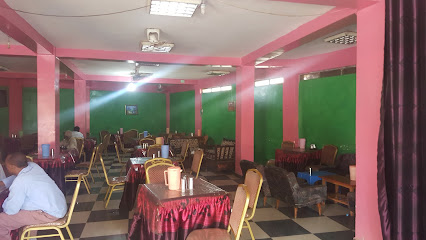
Kamila Chicken
Discover the flavors of Ethiopia at Kamila Chicken – where every bite tells a story.

Jaley Dire Cultural Restaurant
Savor authentic Ethiopian flavors at Jaley Dire Cultural Restaurant in Dire Dawa—where every dish tells a story.
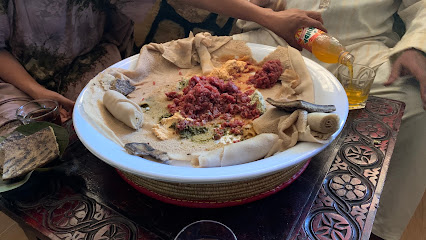
Food Zone dire
Experience authentic Ethiopian cuisine and vibrant nightlife at Food Zone in Dire Dawa - A culinary journey awaits!
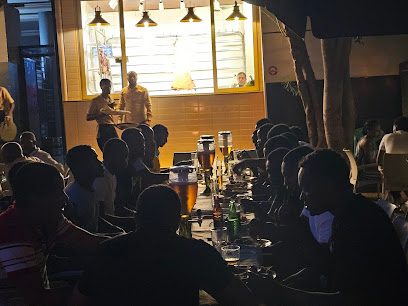
Desalegn burger
Experience the authentic taste of Ethiopia at Desalegn Burger – where every bite tells a story.
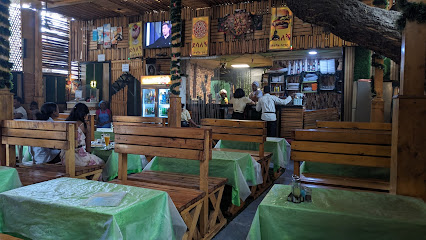
MARSILAS FAST FOOD
Experience delicious fast food at Marsilas Fast Food in Dire Dawa - where local flavors meet quick service!
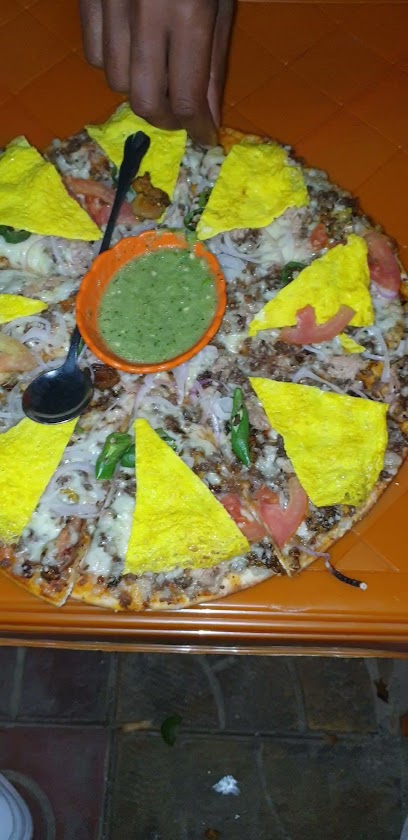
Nibit Restaurant
Experience the rich flavors of Ethiopia at Nibit Restaurant in Dire Dawa, where tradition meets modern culinary artistry.

Ganda Kore
Experience authentic Ethiopian cuisine at Ganda Kore in Dire Dawa - where traditional flavors meet warm hospitality.
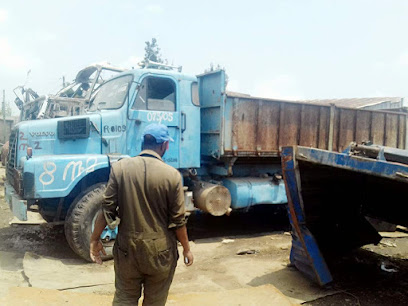
Golden gate cafe and resturant
Experience authentic Ethiopian cuisine at Golden Gate Café and Restaurant in Dire Dawa - where every meal tells a story.
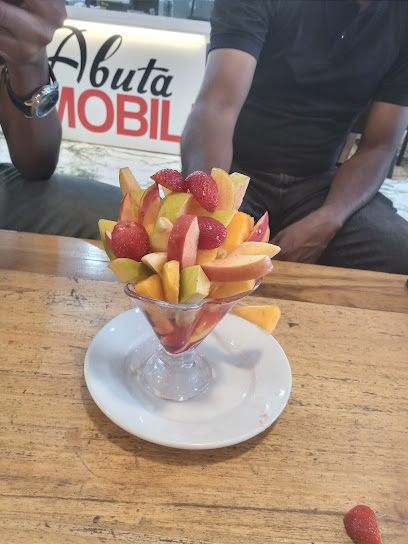
አክስቴ ድንች ቤት Akste denech bet
Experience the vibrant flavors of Ethiopian fast food at Akste Denech Bet in Dire Dawa - a culinary hub offering quick bites with local flair.
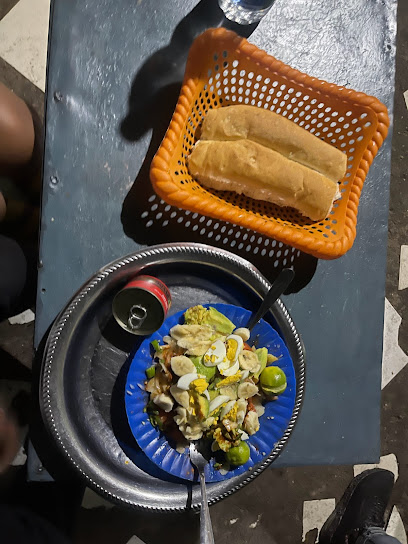
Muna Restaurant
Experience authentic Ethiopian cuisine at Muna Restaurant in Dire Dawa – where every dish tells a story.

Markets, malls and hidden boutiques
Ashewa Cloth Market
Discover the vibrant colors and rich heritage of Ethiopian textiles at Ashewa Cloth Market in Dire Dawa, a must-visit for culture and craft lovers.
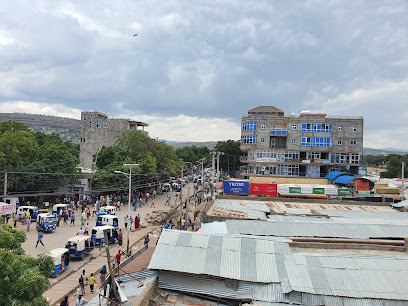
Dire Mall
Discover Dire Mall in Dire Dawa: your go-to destination for shopping, dining, and entertainment in Ethiopia.
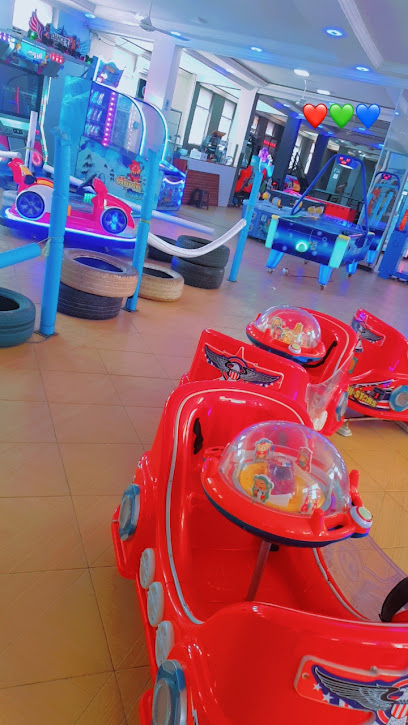
Biftu Mall
Explore Biftu Mall in Dire Dawa for a unique shopping experience, delicious dining options, and a vibrant local atmosphere.
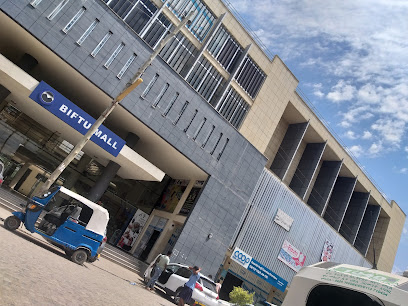
Zemzem mini market
Explore authentic Ethiopian culture and local flavors at Zemzem Mini Market in Dire Dawa, a must-visit grocery store for every tourist.
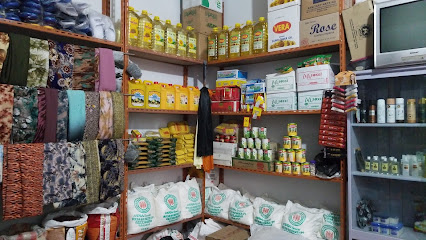
Top Super Market
Explore the vibrant shopping experience at Top Super Market in Dire Dawa, where local flavors and everyday essentials come together.
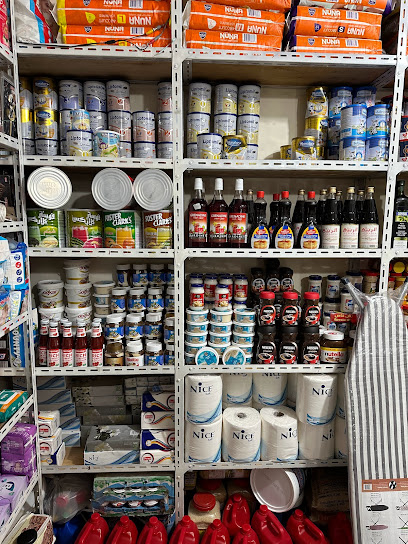
Ashawa
Explore Ashawa - the heart of literature in Dire Dawa, offering a unique selection of local and international titles in a cozy atmosphere.
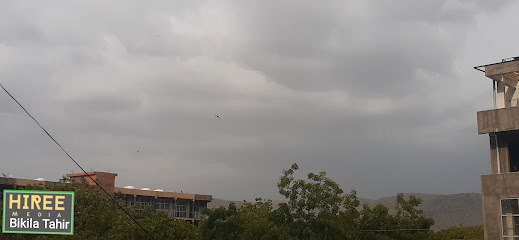
Dawit Garajlge
Discover the essence of Ethiopian culture at Dawit Garajlge, a must-visit store in Dire Dawa offering unique local products and souvenirs.

MMT Home decoration,Cosmo and gift shop
Discover unique gifts and exquisite home decor at MMT Home Decoration, Cosmo, and Gift Shop in Dire Dawa, a must-visit for every traveler.
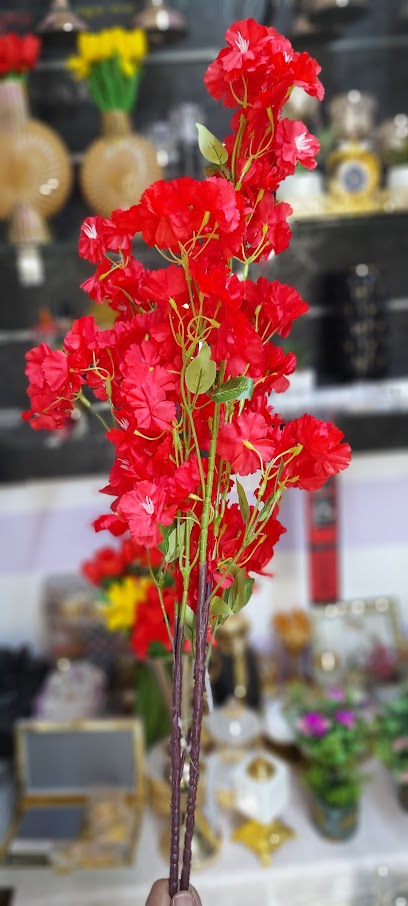
Saido
Discover Saido in Dire Dawa, your go-to electronics store offering a diverse selection of gadgets and tech products in a vibrant atmosphere.
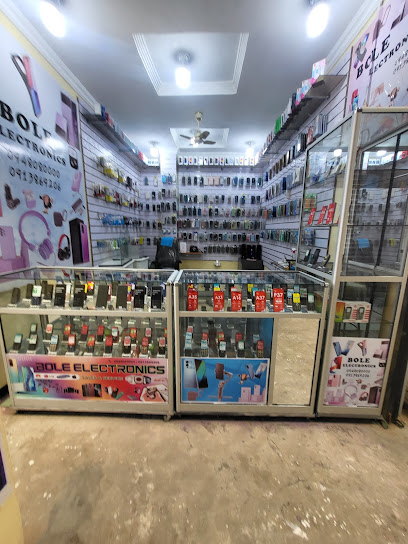
Kedir Mohammed Jibril
Explore the charm of Kedir Mohammed Jibril, a gift shop in Dire Dawa, where unique Ethiopian treasures await every traveler.
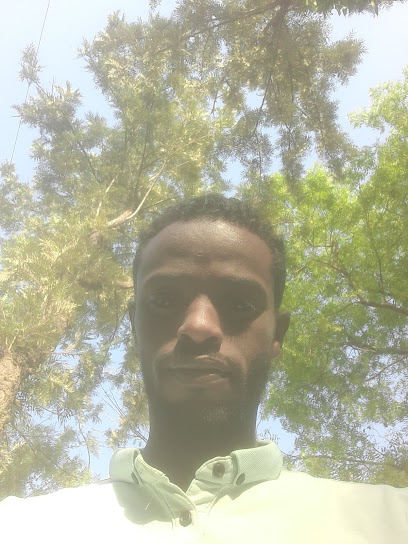
Nezif Jimmaa store
Explore the vibrant Nezif Jimmaa Store in Dire Dawa, where local culture meets diverse shopping options for every traveler.

Mana Firomsa xahir Haji
Explore Mana Firomsa xahir Haji for unique Ethiopian gifts and crafts that capture the country’s rich cultural heritage.

Siyana Decore
Explore Siyana Decore: Your destination for unique Ethiopian gifts and artisan treasures in Dire Dawa.
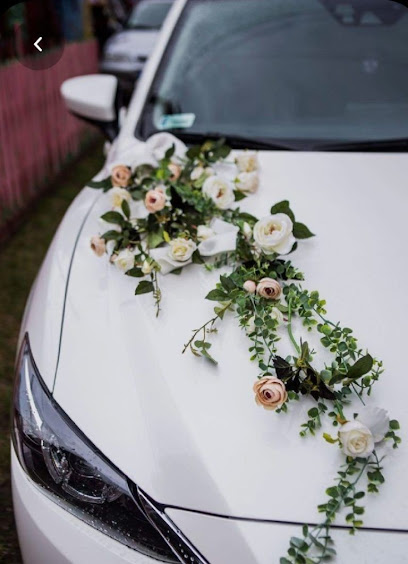
Ajip
Discover the heart of Ethiopian culture at Ajip, a vibrant store in Dire Dawa offering unique local products and authentic souvenirs.
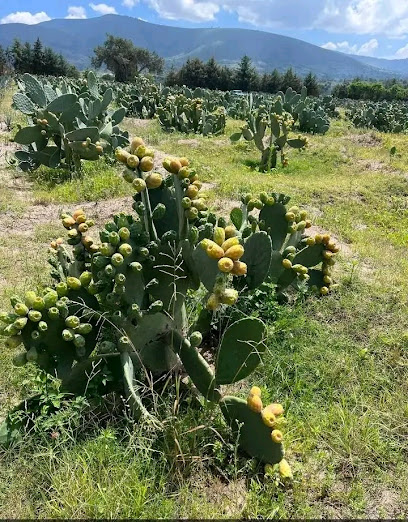
Astu boutique
Discover unique women's fashion at Astu Boutique in Dire Dawa, where style meets local culture in a vibrant shopping experience.
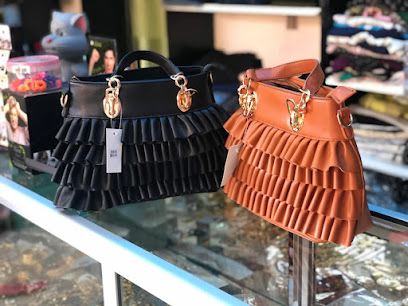
Essential bars & hidden hideouts
Blue Bar
Discover the vibrant atmosphere of Blue Bar in Dire Dawa, where local culture and refreshing drinks meet for an unforgettable nightlife experience.
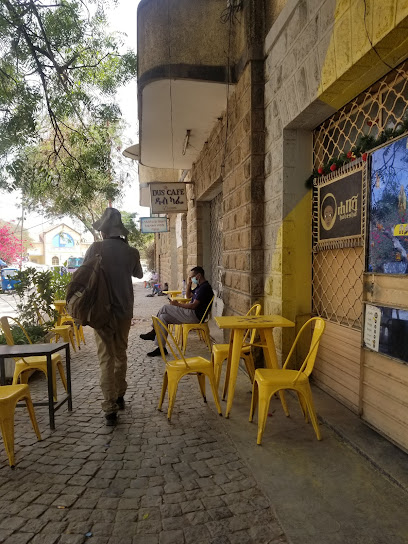
Food Zone dire
Discover the authentic taste of Ethiopia at Food Zone Dire, where vibrant flavors and a lively atmosphere await every visitor.
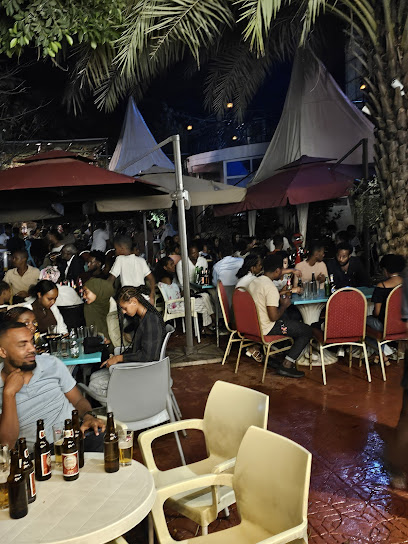
ሳሬም ሆቴል Sarem Hotel
Discover the vibrant nightlife of Dire Dawa at Sarem Hotel, where refreshing drinks and local charm await every visitor.
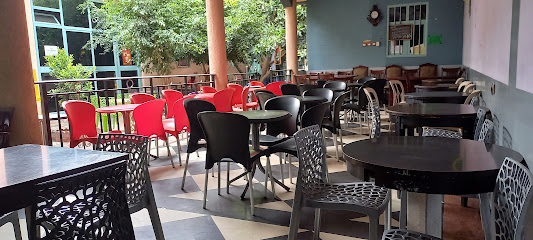
DM Bar
Discover the lively DM Bar in Dire Dawa, where local culture meets refreshing drinks and unforgettable memories await.
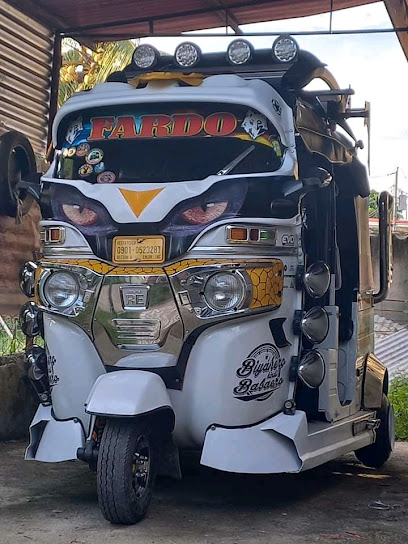
Efficient bar
Experience the vibrant atmosphere of Efficient Bar in Dire Dawa, where locals and tourists unite over drinks and great company.

Barwaqo jama
Discover the vibrant flavors of Ethiopia at Barwaqo Jama, a premier grill restaurant in Dire Dawa, offering authentic dishes in a lively atmosphere.

Lucky Bar, Dire Dawa
Discover the lively atmosphere of Lucky Bar, a vibrant hotspot in Dire Dawa, perfect for enjoying local drinks and vibrant entertainment.

Rendezvous Pub
Discover the vibrant nightlife and local culture at Rendezvous Pub in Dire Dawa, where drinks and friendly conversations await.
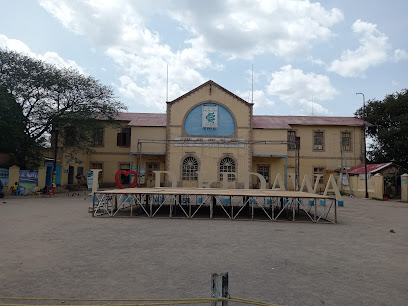
EMPIRE BAR
Discover the lively ambiance of Empire Bar in Dire Dawa, where local culture meets refreshing drinks and vibrant nightlife.

Yabana Sport Bar
Experience the vibrant nightlife of Dire Dawa at Yabana Sport Bar, where locals and tourists unite over drinks and lively conversations.

Kifajo Bar
Experience the vibrant nightlife of Dire Dawa at Kifajo Bar, where local flavors and a warm atmosphere await every visitor.

Ashu ketfo
Discover the essence of Ethiopian culture at Ashu Ketfo in Dire Dawa - a lively bar serving authentic local cuisine in a vibrant setting.

Enikfate (እንቅፋት ) Grocery
Discover the heart and soul of Dire Dawa at Enikfate Grocery, where local flavors and vibrant culture come together in a welcoming bar setting.
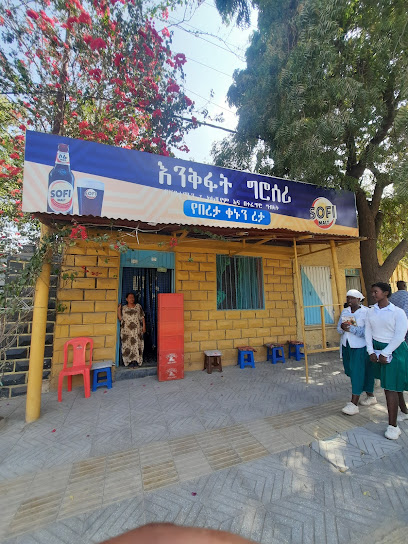
Eqra masque
Experience the vibrant culture of Dire Dawa at Eqra Masque, a lively bar offering a unique blend of local drinks and entertainment.

Abushe
Experience vibrant nightlife and local culture at Abushe, a lively bar in Dire Dawa, perfect for relaxing with friends and enjoying Ethiopian hospitality.

Travel experiences inspired by this city
Explore more travel diariesLocal Phrases
-
- HelloSelam
[seh-lahm] - GoodbyeHabisha
[ha-bee-shah] - YesEyye
[eh-yeh] - NoAy
[ah-ee] - Please/You're welcomeMinamin
[mee-nah-meen] - Thank youAmeseginalehu
[ah-meh-seh-gee-nah-leh-hoo] - Excuse me/SorrySamay
[sah-mai] - How are you?Aga bekalu?
[ah-gah beh-kah-loo] - Fine. And you?Aga bekalu. Ageru?
[ah-gah beh-kah-loo. ah-geh-roo] - Do you speak English?Inglizegna beza?
[in-glee-zehg-nah beh-zah] - I don't understandFahamishalalu
[fah-hah-mee-shah-lah-loo]
- HelloSelam
-
- I'd like to see the menu, pleaseMenu yetebabkutal
[meh-noo yeh-teh-bahb-koo-tahl] - I don't eat meatTibsat asamugn
[tee-bah-saht ah-sah-mug-n] - Cheers!Chin-chin!
[cheen-cheen] - I would like to pay, pleaseTinsae yetemsele
[teen-sah-eh yeh-tehm-seh-leh]
- I'd like to see the menu, pleaseMenu yetebabkutal
-
- Help!Bal!
[bah-l] - Go away!Lesso!
[leh-so] - Call the Police!Polis yemot!
[poh-lees yeh-moht] - Call a doctor!Doktor yemot!
[dohk-tohr yeh-moht] - I'm lostZaralehu
[zah-rah-leh-hoo] - I'm illAreba
[ah-reh-bah]
- Help!Bal!
-
- I'd like to buy...Tena yetesabet...
[teh-nah yeh-teh-sah-beht...] - I'm just lookingTinish lekem
[tee-neesh leh-kehm] - How much is it?Kedame ati man?
[keh-dah-meh ah-tee mahn] - That's too expensiveAgeru sira
[ah-geh-roo see-rah] - Can you lower the price?Gebena menesat?
[geh-beh-nah meh-neh-saht]
- I'd like to buy...Tena yetesabet...
-
- What time is it?Yefera ena?
[yeh-feh-rah eh-nah] - It's one o'clockAnd ena zetena
[ah-nd eh-nah zeh-teh-nah] - Half past (10)Miriya (assera)
[mee-ree-yah (ahs-sah-rah)] - MorningBikid
[bee-keed] - AfternoonMenen
[meh-nehn] - EveningSefar
[seh-fahr] - YesterdayDoksa
[doh-ksah] - TodayNen
[neh-n] - TomorrowBalcha
[bah-l-chah] - 1And
[ah-nd] - 2Hulet
[hoo-leht] - 3Sost
[sohst] - 4Arat
[ah-raht] - 5Amist
[ah-mist] - 6Sidist
[see-dist] - 7Sebat
[seh-baht] - 8Semen
[seh-men] - 9Zetegn
[zeh-teg-n] - 10Asra
[ahs-rah]
- What time is it?Yefera ena?
-
- Where's a/the...?Ay zeyne...?
[ah-y zeh-yeh-nay] - What's the address?Aye adres?
[ah-yeh ah-drehs] - Can you show me (on the map)?Belejochi mesle?
[beh-leh-joh-chee meh-sleh] - When's the next (bus)?Lemedyat sewet?
[leh-mehd-yat seh-wet] - A ticket (to ....)Tikiti (le ....)
[tee-kee-tee (leh ....)]
- Where's a/the...?Ay zeyne...?
History of Dire Dawa
-
Dire Dawa was established in 1902 as a critical railway hub connecting the port of Djibouti to Addis Ababa. The city's creation was driven by the need for a more efficient transportation route, bypassing the difficult terrain that made overland travel challenging.
-
The Ethio-Djibouti Railway played a central role in the early 20th century, transforming Dire Dawa into a vibrant commercial center. The railway's construction brought a mix of cultures and peoples, contributing to the city's rich cultural tapestry.
-
During the Second Italo-Ethiopian War (1935-1941), Dire Dawa was occupied by Italian forces. The city served as a strategic military base and saw significant infrastructural developments during this period, including road construction and the establishment of administrative buildings.
-
After World War II, Dire Dawa continued to grow as a key economic hub. The city saw increased industrial activity, including the establishment of textile and cement factories. This period marked a significant transformation in the city's economic landscape.
-
Dire Dawa is renowned for its cultural diversity, home to a mix of ethnic groups including the Oromo, Somali, Amhara, and Harari. This diversity is reflected in the city's architecture, cuisine, and vibrant festivals, such as Ashura and Meskel.
-
The city is divided into two distinct areas: the Old Town (Megala) and the modern Kezira. The Old Town, characterized by its narrow streets and traditional markets, contrasts with the more planned and European-influenced Kezira, providing a glimpse into the city's historical evolution.
-
Today, Dire Dawa is an important commercial and industrial center in Ethiopia. The Dire Dawa Free Trade Zone, established in the early 21st century, has further boosted the city's economic significance, attracting businesses and investments from across the region.
Dire Dawa Essentials
-
Dire Dawa is accessible via Dire Dawa International Airport (DIR), which has regular flights from Addis Ababa and other regional hubs. Alternatively, you can take a train from Addis Ababa to Dire Dawa, which offers a scenic route and takes approximately 12 hours. Long-distance buses and minibuses (known as 'matatus') also operate routes between Addis Ababa and Dire Dawa, with the journey typically taking around 8 to 10 hours.
-
Within Dire Dawa, local taxis and bajajs (three-wheeled vehicles) are the most common modes of transportation. They are relatively inexpensive and can be hailed on the street. Public minibuses also operate on fixed routes and are a budget-friendly option. For those looking to explore surrounding areas, renting a car with a driver is advisable due to local road conditions and traffic norms.
-
The official currency in Ethiopia is the Ethiopian Birr (ETB). Credit cards are accepted in major hotels and some restaurants, but cash is preferred in local markets and smaller establishments. ATMs are available in Dire Dawa, but it is advisable to carry sufficient cash, especially if you plan to visit rural areas. Currency exchange services are available at banks and authorized exchange bureaus.
-
Dire Dawa is generally safe for tourists, but it is wise to take standard precautions. Avoid walking alone at night in unfamiliar areas and be cautious with your belongings in crowded places. Areas such as Kezira Market and certain parts of the old town can be bustling, so stay vigilant. It is advisable to stick to well-lit and populated areas after dark.
-
In case of emergency, dial 911 for immediate assistance. The local police station and medical facilities are available in Dire Dawa. It is recommended to have travel insurance that covers medical emergencies. For minor health issues, there are pharmacies in the town where you can purchase over-the-counter medications. The main hospital in Dire Dawa is Dil Chora Hospital, which provides emergency services.
-
Fashion: Do dress modestly, especially when visiting religious sites. Avoid wearing revealing clothing. Religion: Do respect local customs and traditions. Always remove your shoes before entering a mosque. Public Transport: Do be respectful and give up your seat to elderly passengers. Don't eat or drink on public transport. Greetings: Do greet people with a handshake. A slight bow of the head is also a sign of respect. Eating & Drinking: Do try local delicacies and accept food offerings graciously. Don't refuse hospitality, as it is considered impolite.
-
To experience Dire Dawa like a local, visit the Dire Dawa market, also known as the 'Taiwan Market,' where you can buy fresh produce and traditional Ethiopian goods. Engage with locals, as they are often friendly and willing to share stories about the town's history and culture. Don't miss visiting the old railway station, which is a significant historical landmark. For a unique experience, take a stroll through the French-built quarter to see colonial architecture.
Trending Landmark in Dire Dawa
-
ሳምራት ሆቴል Samrat Hotel
-
Dire Dawa Ras Hotel
-
New Blossom, Hotel & Spa
-
Triangle Hotel | ትሬያንግል ሆቴል
-
MM Hotel
-
African Village
-
Papa Recreation Centre
-
Seista Hotel
-
Dredawa Saint Gabriel Ethiopian Orthodox Tewahedo Church
-
Cleopatra Hotel and Spa
-
ALI BIRRA PARK
-
Selam Hotel
-
MA Hotel
-
Ethiopian Airlines
-
Ashewa Cloth Market
Nearby Cities to Dire Dawa
-
Things To Do in Harar
-
Things To Do in Dikhil
-
Things To Do in Ali Sabieh
-
Things To Do in Arta
-
Things To Do in Hargeisa
-
Things To Do in Loyada
-
Things To Do in Djibouti City
-
Things To Do in Tadjoura
-
Things To Do in Obock
-
Things To Do in Addis Ababa
-
Things To Do in Lalibela
-
Things To Do in Debre Markos
-
Things To Do in Awasa
-
Things To Do in Aden
-
Things To Do in Mekele












